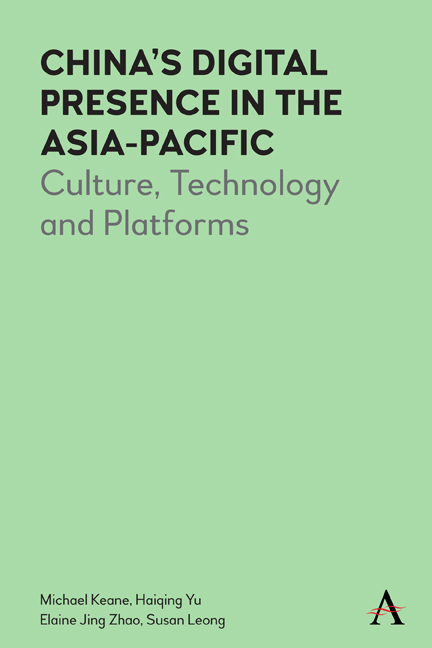9 - From Cultural Presence to Innovative Nation
Published online by Cambridge University Press: 20 January 2022
Summary
A theatre of war during the period of China's great ‘People's Revolution’, the Asia-Pacific region is now embroiled in a cold war developing between the forces of Western liberalism and an emboldened PRC. Indeed, the rise of China and its global ambitions have caused tension among its rivals and partners alike. President Xi Jinping has extolled the benefits of globalization even as China's propaganda forces engage in a ‘discourse war’. Xi's signature project, the Belt and Road Initiative (BRI), which has been viewed with suspicion by the United States and some of its allies, is an example of the buildup of Chinese power in Asia in the twenty-first century. Meanwhile, several Western-allied nations have erected physical and logistical barriers to the entry of Chinese digital companies; for instance, bans have been imposed on the 5G network infrastructure services of China's national champion Huawei by the United States, Australia, New Zealand, Japan and Taiwan.
Chinese presence is everywhere in the world, from Chinatowns to international students to branded digital devices, but does this presence translate into cultural power? Drawing on the discussions in the previous three chapters, this final chapter summarizes some of the challenges that Chinese digital platforms face as they navigate a path into the Asia-Pacific and beyond. The findings from our study of Chinese digital platforms in the Asia-Pacific may offer a glimpse of the future of Chinese influence and cross-cultural relations.
In a recent work entitled China and the West, Peter Nolan writes effusively about the achievements of Chinese civilization and culture. Whereas the West has wrought terrible environmental damage on the world, not to mention centuries of colonialism, Nolan says that the Chinese government seeks to achieve mutual benefits for all countries. Martin Jacques, a fellow admirer of the China Model, proposes that China is a civilizational state, a view heavily promoted by Chinese Communist Party propaganda apparatchiks such as Zhang Weiwei, author of several books including The China Horizon: Glory and Dreams of a Civilizational State. Speaking about his experiences of ‘going out’, Zhang says, ‘Going abroad makes one feel more patriotic. This is far more effective than the Party's political education.’
- Type
- Chapter
- Information
- China’s Digital Presence in the Asia-PacificCulture, Technology and Platforms, pp. 155 - 162Publisher: Anthem PressPrint publication year: 2020



